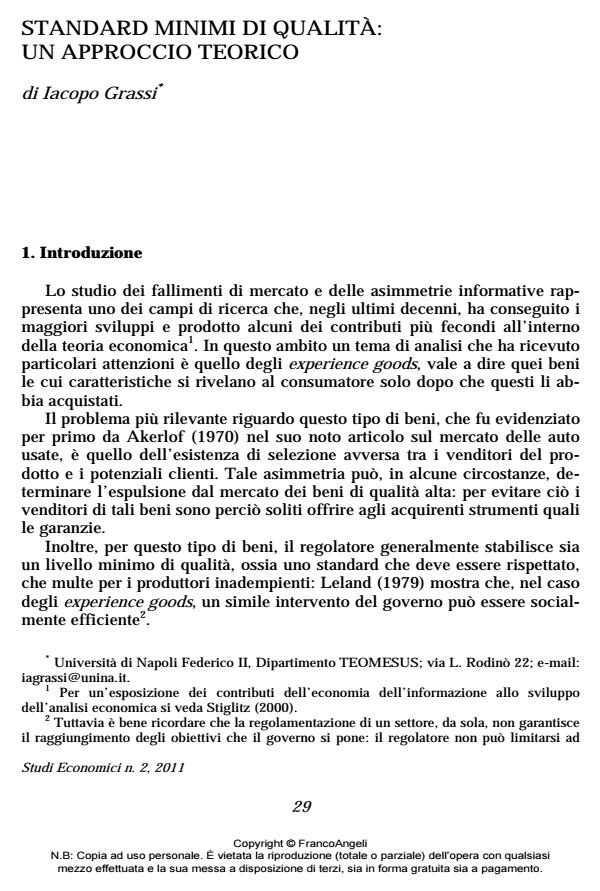Standard minimi di qualità: un approccio teorico
Journal title STUDI ECONOMICI
Author/s Grassi Iacopo
Publishing Year 2012 Issue 2011/104 Language Italian
Pages 13 P. 29-41 File size 122 KB
DOI 10.3280/STE2011-104002
DOI is like a bar code for intellectual property: to have more infomation
click here
Below, you can see the article first page
If you want to buy this article in PDF format, you can do it, following the instructions to buy download credits

FrancoAngeli is member of Publishers International Linking Association, Inc (PILA), a not-for-profit association which run the CrossRef service enabling links to and from online scholarly content.
At least since Akerlof (1970), asymmetric information in the case of experience goods has been a central issue in the economic literature. This paper studies regulation in markets where the quality of the experience good is never completely verifiable by consumers even after purchase. In the proposed model firms can decide the quality of the good: always producing a high quality good creates a positive externality in the market, but it causes an incentive to the firms to deviate and produce low quality goods. The main policy instrument for the government, in order to maximize Social Welfare, is to fix a minimum quality standard, but imposing a too high standard might, in some cases, lower the average quality of the good in the market.
Keywords: Quality, standard, market regulation, experience goods, market failure, asymmetric information
Jel codes: L15, D82, K29
Grassi Iacopo, Standard minimi di qualità: un approccio teorico in "STUDI ECONOMICI " 104/2011, pp 29-41, DOI: 10.3280/STE2011-104002